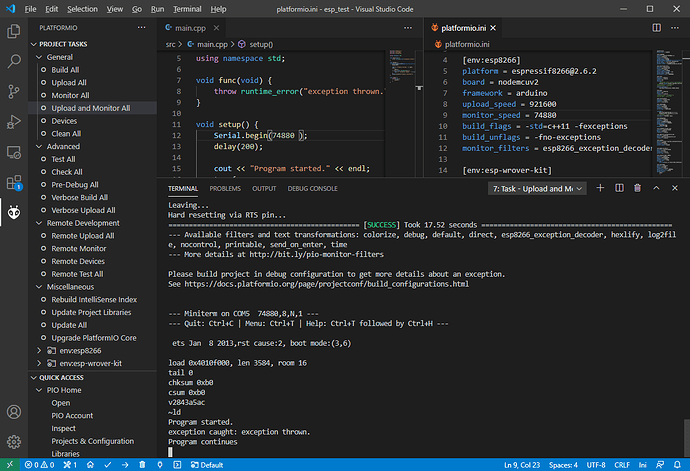Well, that was easy. When sifting through the Arduino IDE linker commands it because apparent…
The linker flags in the Arduino IDE, with exceptions enabled, read:
-lhal -lphy -lpp -lnet80211 -llwip2-536-feat -lwpa -lcrypto -lmain -lwps -lbearssl -laxtls -lespnow -lsmartconfig -lairkiss -lwpa2 -lstdc++-exc -lm -lc -lgcc -Wl,--end-group
Notice the -lstdc++-exc library in there… well PlatformIO does
…just a linking with stdc++ instead of stdc++-exc in all cases.
Replacing stdc++ with stdc++-exc immediately makes the firmware work with PlatformIO (in C:\Users\<user>\.platformio\packages\framework-arduinoespressif8266\tools\platformio-build.py)
I’ll propose a patch into GitHub - platformio/platform-espressif8266: Espressif 8266: development platform for PlatformIO to get this working.
